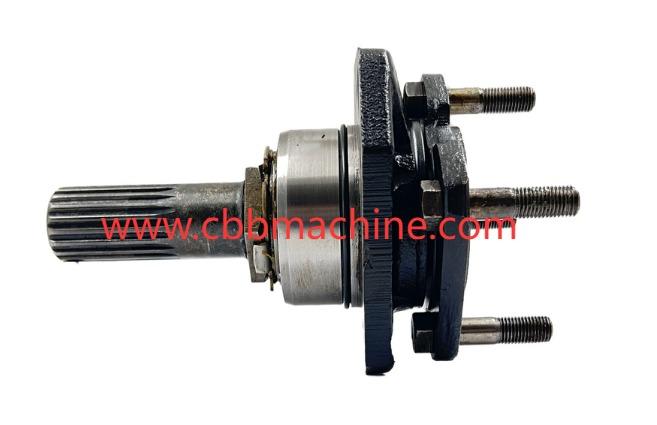The Differential Shaft provided by Cbbmachine may appear to be a simple rotating core, yet it carries a quiet responsibility within every winding and slitting line that depends on multiple rolls moving with different tensions at the same time. Its influence is not loud or visually dramatic, but its absence becomes immediately apparent whenever material alignment breaks down or secondary rewinding requires constant correction.
This type of shaft solves one of the most persistent challenges in converting and film handling environments. Multiple rolls on a single axis rarely behave identically. Substrates stretch at slightly different rates, coatings introduce subtle drag, and roll diameters never shrink at the same speed. A mechanical core that compensates for these differences without stopping the machine becomes a foundation for stable production. It does this through controlled slip at each core position, allowing every roll to rotate at an individually balanced pace while maintaining consistent winding tension.
Operators often talk about tension control as if it were a visible element, but in truth it reveals itself only through results. A film that lies flat on the core, a label stock that unwinds without curl, a laminate that stays aligned across its width. These outcomes are not accidental. They come from a shaft that quietly releases or absorbs minor speed differences so that no single roll becomes a source of stress in the system.
Workflow efficiency grows when small issues never escalate. A shaft that prevents edge wrinkles eliminates the need for constant trimming. Balanced winding reduces the risk of telescoping during transport. Even the sound of the machine becomes more consistent, replacing vibration and chatter with steady rotation. The device influences not only product quality but the atmosphere of production itself.
Maintenance teams value stability over novelty. Because the adjustment happens internally, there are no external clutches to replace and no repeated manual tension corrections. The design focuses on maintaining consistent torque distribution across every winding position. As a result, operators spend more time running the line and less time recalibrating or reworking partial rolls with poor tension distribution.
Production managers evaluate equipment by how easily it adapts to shifting order requirements. Short runs demand quick changeovers. Different substrate families require different slip behavior. A well built differential system accommodates these transitions without tearing material or worsening waste. It supports naming new roll widths or coating types without rebuilding the mechanical core of the line.
Material waste is not caused only by major breakdowns. It accumulates in small defects that appear only at the end of a roll. Progressive stretch, subtle offset, or uneven core pressure all create hidden losses. A shaft that corrects these micro inconsistencies becomes a silent factor in long term productivity.
The real impact of this component becomes visible only in its absence. When it is replaced by a fixed shaft, operators retreat to manual tension adjustments, compensating for slight reel variations. Downtime grows. Perfectly good substrate becomes scrap. The sense of ease disappears and is replaced by constant monitoring.
Every machine contains hidden architecture. Some parts attract attention with movement or noise. Others choose a different path, shaping quality through restraint and balance. A differential core belongs to the second group. It does not seek credit. It simply allows the machine to behave as if internal variations do not exist.
If a single rotating element can remove such complexity, consider what other silent improvements may already exist within reach. Follow a simple mechanical curiosity to www.cbbmachine.com and allow one click to become the beginning of your next quiet upgrade.



